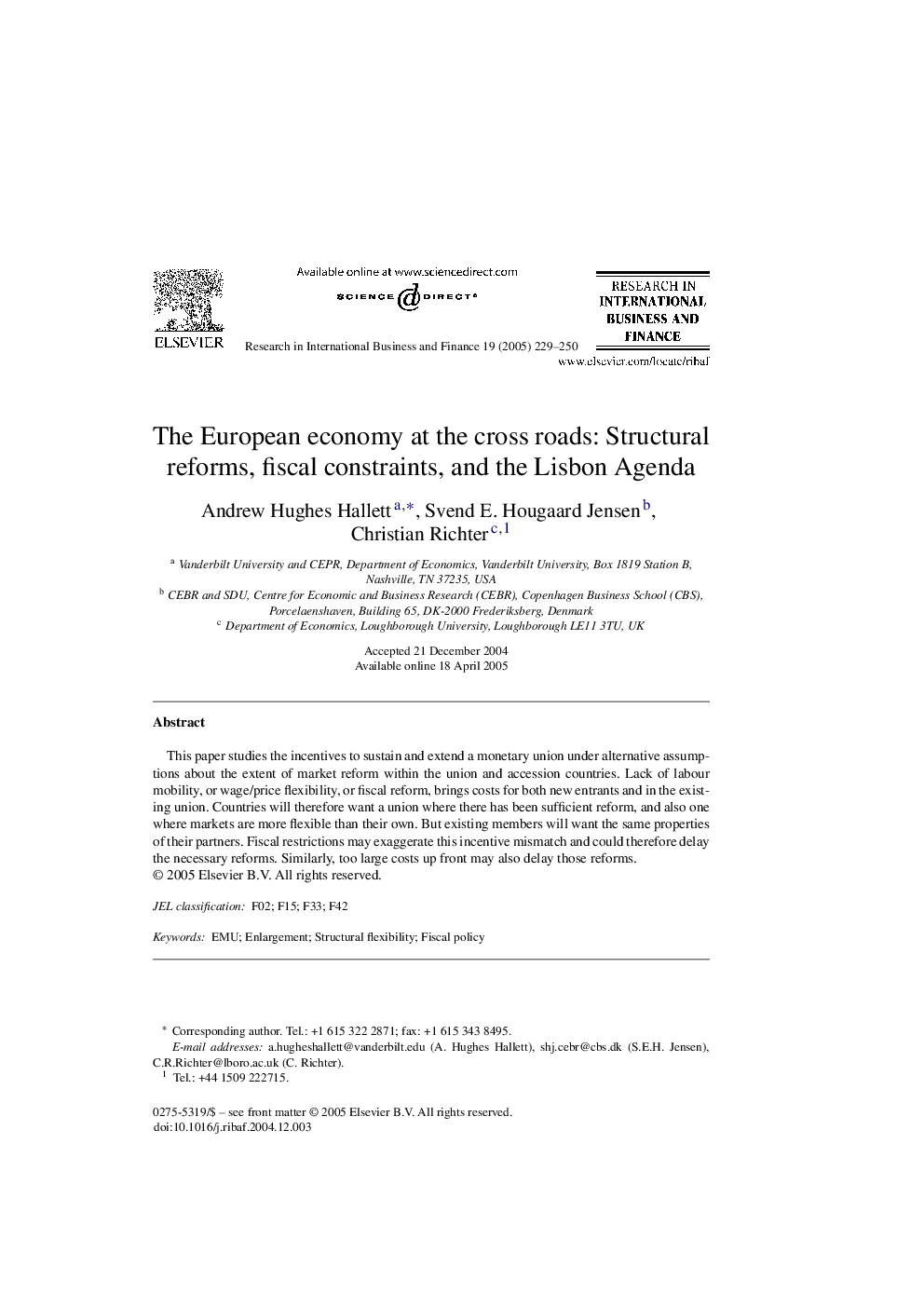| Article ID | Journal | Published Year | Pages | File Type |
|---|---|---|---|---|
| 10489117 | Research in International Business and Finance | 2005 | 22 Pages |
Abstract
This paper studies the incentives to sustain and extend a monetary union under alternative assumptions about the extent of market reform within the union and accession countries. Lack of labour mobility, or wage/price flexibility, or fiscal reform, brings costs for both new entrants and in the existing union. Countries will therefore want a union where there has been sufficient reform, and also one where markets are more flexible than their own. But existing members will want the same properties of their partners. Fiscal restrictions may exaggerate this incentive mismatch and could therefore delay the necessary reforms. Similarly, too large costs up front may also delay those reforms.
Related Topics
Social Sciences and Humanities
Business, Management and Accounting
Business and International Management
Authors
Andrew Hughes Hallett, Svend E. Hougaard Jensen, Christian Richter,
